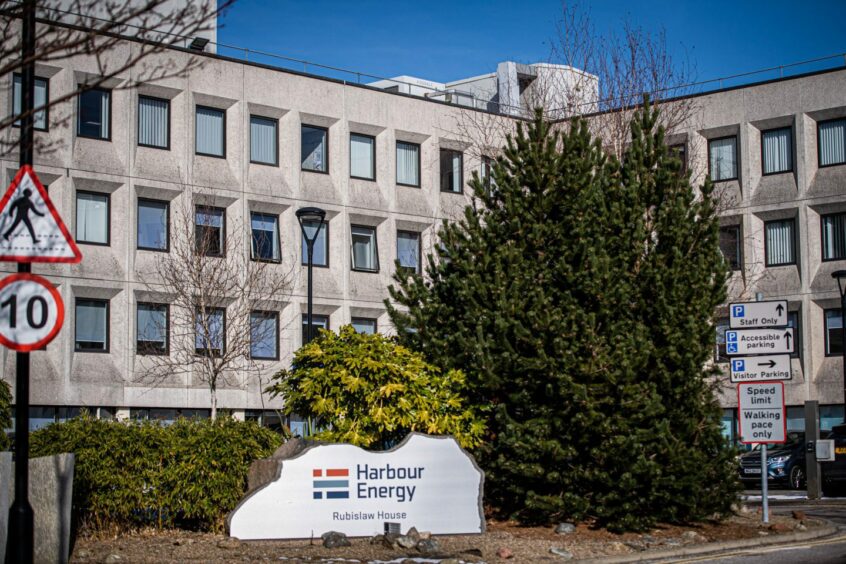
Harbour Energy (LON: HBR) has turned in a “strong first quarter”, according to chief executive Linda Cook, with the firm on track to meet full-year guidance on hydrocarbon production.
Harbour’s production averaged 202 thousand barrels of oil equivalent per day (kboepd), which is down 13 thousand barrels per day compared to the first quarter of 2022.
However, the firm says this reflects new wells on-stream, including at Tolmount, J-Area and Clair, partially offsetting natural decline.
With a 50/50 split between oil and gas production, Harbour says it is on track to meet full-year guidance of 185-200 kboepd.
Ms Cook said: “We delivered a strong first quarter. Continuing to invest in our portfolio while actively managing our cost base has enabled us to further deleverage our balance sheet and return additional capital to shareholders.”
This news comes ahead of the company’s annual general meeting, which is set to take place at 10 am today in London.
Ups and downs
The firm has reported increasing activity post-first quarter, including drilling in the UK, and exploration campaigns in Indonesia and Norway.
However, Harbour has seen production drops at certain UK sites due to the impacts of the controversial energy profits levy, also referred to as the windfall tax.
These impacts include partner cancelled programmes at Elgin Franklin and Beryl and rephasing of certain decommissioning activities, the firm writes.
Earlier this year Harbour Energy confirmed it plans to “re-phase” up to $100 million per year of decommissioning spend in the wake of the windfall tax.
350 onshore positions cut by H2
The UK’s largest producer of hydrocarbons said it expects to cut the previously announced 350 onshore jobs across the UK in the Second half of the year.
In today’s announcement, the firm wrote: “This is forecast to deliver annual savings of c.$50 million from 2024, following an estimated c.$15 million one off charge to be taken in Harbour’s 2023 interim financial statements.”
The majority of Harbour‘s onshore UK staff are based in Aberdeen and at the time of the announcement, it claimed the windfall tax is the reason behind the decision.
However, analysts have said that Harbour’s “bloated” staff levels are a major contributing factor to the cuts, rather than just the windfall tax.
Ashley Kelty, an analyst at investment bank Panmure Gordon has previously said that the courts are “not a shock from Harbour”
The analyst added: “I am not sure many other operators will look to slash jobs – Harbour was quite bloated staff wise and this will help make it easier to get rid of the last remaining Premier Oil staff they acquired.”
CCS
The firm also said it was making headway with its carbon capture and storage efforts, with its operated Viking and non-operated Acron looking good for the government’s Track 2 funding.
Harbour writes that both projects are “recognised as best placed to meet the UK Government’s objectives for the Track 2 regulatory approval process.”
Confirmation of Track 2 status would allow negotiation with the Government over the terms of the economic licences to commence and the projects to move to FEED ahead of a potential final investment decision.
This comes as the UK government looks to expand the powers of the regulatory body, Sea Transition Authority, to encompass CO2 storage as the country looks to create a ‘treasure map’ to ensure the success of the sector in British waters.
At the beginning of the month, Harbour Energy’s Steve Cox says CCS projects are now in a race to secure finite funds, with oil companies handing over most of their profits to the government as a result of the windfall tax.
It means developers are faced with “difficult conversations” over where best to allocate cash, the operator’s EVP HSES for net zero and ccs told an OEUK event.
Speaking at the Aberdeen event, Mr Cox said: “The tax regime in the UK makes it very difficult for us to raise capital. The sentiment for all oil and gas companies that operate here has taken a hit because of that additional tax.
“That doesn’t mean that those companies will step away from CCS. But what it does mean is that we will have difficult capital allocation conversations, where the technology will be put up against other international projects, whether it’s CCS in North America, or oil and gas in the Far East.
“It (the EPL) will make it more difficult, there’s no doubt about that. It will limit our access to capital, both from our internal balance sheet, and from external sources of funding.”
Recommended for you

 © Supplied by Viking CCS
© Supplied by Viking CCS